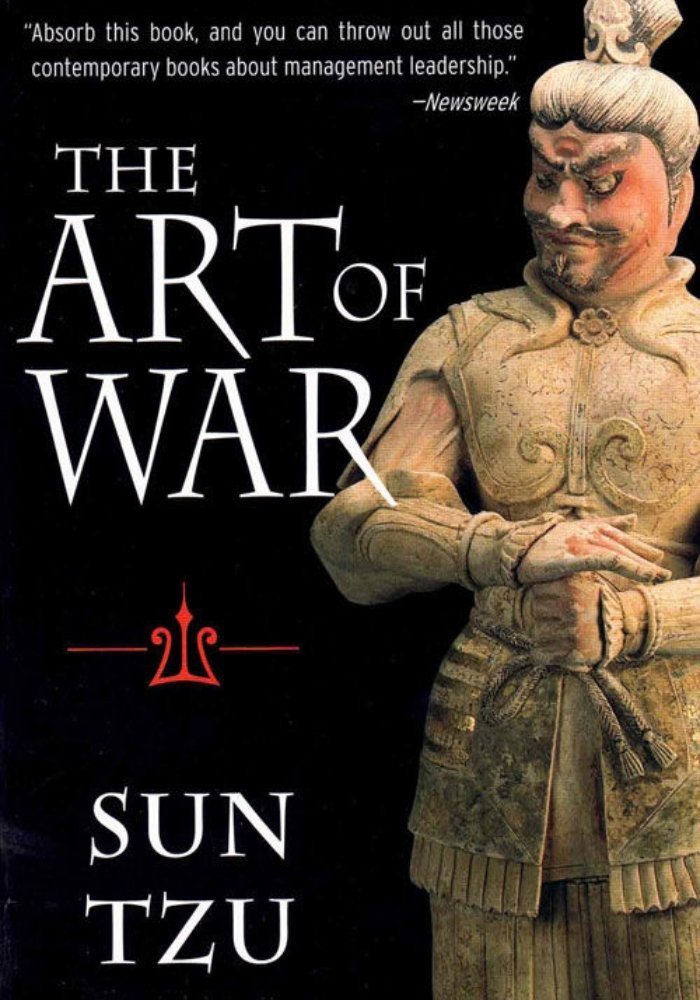Introduction
Sun Tzu’s “The Art of War,” known for its enduring impact, not only dictates warfare tactics but also provides insightful strategies applicable to modern challenges like business negotiations and personal development. This ancient manual delves into human nature and the essence of conflict resolution, offering lessons vital for leadership and strategic planning. In our exploration, we aim to uncover how these age-old principles can still significantly influence contemporary life and success.
Overview of the Book
“The Art of War,” more than just a text, serves as a profound collection of insights on strategy, leadership, and the psychology behind conflict, originating in the 6th century BC. This guide covers crucial themes like tactical planning and espionage, interwoven with philosophical reflections. It famously advocates for conquering without conflict, stressing foresight, knowledge, and adaptability. Notably, chapters on tactical dispositions and the use of spies exemplify how Sun Tzu’s understanding of human nature informs his strategic advice. Understanding the historical and cultural backdrop of Sun Tzu’s era adds depth to why these strategies were revolutionary.
Key Concepts
Sun Tzu’s “The Art of War” highlights the supremacy of strategy over direct conflict, advocating for victory without battle, which underscores the importance of meticulous planning in personal and professional spheres. For instance, adapting to change echoed in Bruce Lee’s advice, “Be water, my friend” is essential, though not originally from Sun Tzu, it reflects his teachings on flexibility in strategy. Understanding ourselves and our opponents, as per Sun Tzu, ensures success across numerous encounters, emphasizing deep knowledge as a strategic asset. Additionally, Sun Tzu’s focus on the economical use of resources advises against the exhaustive toll of extended efforts, promoting efficiency to prevent burnout. Lastly, mastering psychological tactics and moral persuasion forms a core part of his strategy, applicable in leadership and personal interactions today. These ancient strategies are not just historical but are dynamically applicable in contemporary challenges, providing a blueprint for effective decision-making and influence.
Personal Reflections
Reading “The Art of War” has significantly reshaped my approach to conflict and strategy. A notable instance occurred during a critical project at work, where differing visions threatened to derail our progress. Instead of confronting the opposing ideas head-on, I applied Sun Tzu’s principles by steering discussions towards common goals and strategically aligning our objectives. This approach not only averted direct conflict but also fostered a collaborative atmosphere. This strategy prioritizing consensus over confrontation mirrors Sun Tzu’s advice on overcoming without battle and has become a cornerstone of my decision-making process in both personal and professional contexts. These experiences underscore the practical applications of Sun Tzu’s strategic wisdom in navigating daily challenges.
Strengths and Weaknesses
The brevity and layered depth of “The Art of War” constitute its primary strength, making each aphorism a rich source of insight applicable across multiple scenarios. For example, the maxim “All warfare is based on deception” illustrates strategic thinking that is beneficial in both military and business contexts, emphasizing the value of unpredictability and strategic surprise. On the flip side, the text’s succinct, aphoristic style presents challenges, its need for deep interpretation might lead to misunderstandings. A common misinterpretation is the oversimplification of strategic principles, which can lead to ineffective or unethical decision-making if not critically analyzed. To mitigate these challenges, readers could supplement their study with detailed commentaries or apply a methodical, reflective approach to each lesson to grasp its full implications effectively. This balanced approach can help harness the text’s wisdom while minimizing the risks of superficial understanding.
Application in Real Life
Sun Tzu’s ancient strategies are remarkably relevant in contemporary settings, guiding us through complex social and professional landscapes. For example, in office politics, applying his principle of understanding the terrain can translate to mastering the organizational culture and power dynamics, leading to more effective positioning and alliances. Similarly, in personal relationships, his advice on knowing the enemy can help in understanding differing perspectives, enhancing empathy and communication. A specific instance of adaptability could be adjusting a project approach in response to unforeseen challenges, which aligns with Sun Tzu’s tactic of altering strategies fluidly based on evolving circumstances. These practical applications demonstrate how Sun Tzu’s focus on strategy, knowledge, and adaptability can lead to insightful and successful outcomes in various aspects of life.
Memorable Quotes
“Appear weak when you are strong, and strong when you are weak.”
“The supreme art of war is to subdue the enemy without fighting.”
“In the midst of chaos, there is also opportunity.”
These famous lines from Sun Tzu are not mere reflections but strategies with modern applications. For example, displaying vulnerability can be a tactical advantage in negotiations, avoiding direct conflict preserves resources in business, and finding opportunities in chaos mirrors crisis management techniques used today. By applying these ancient concepts to contemporary scenarios, we demonstrate the enduring relevance of Sun Tzu’s strategies in everyday challenges, from boardroom tactics to navigating peak hour at Starbucks.
Conclusion
Sun Tzu’s “The Art of War” transcends its origins as a military guide, offering strategic wisdom applicable across various aspects of life. This text is a blueprint for navigating personal and professional challenges with finesse, emphasizing strategic planning and psychological insight.
Consider a tech startup that sidesteps direct competition with giants by innovating in a niche market, embodying Sun Tzu’s advice to win without conflict. Or, think of a manager who reallocates resources efficiently, ensuring her team meets critical deadlines without burnout this is the art of managing wisely Sun Tzu spoke of.
Let’s take these lessons to heart. Whether it’s avoiding needless workplace conflicts through proactive communication, or negotiating family dynamics during the holidays, applying Sun Tzu’s principles can lead to profound victories those that preserve harmony and advance goals without turmoil. In doing so, we realize that Sun Tzu’s strategies are not just about avoiding battles, but about choosing them wisely and winning them effortlessly.






